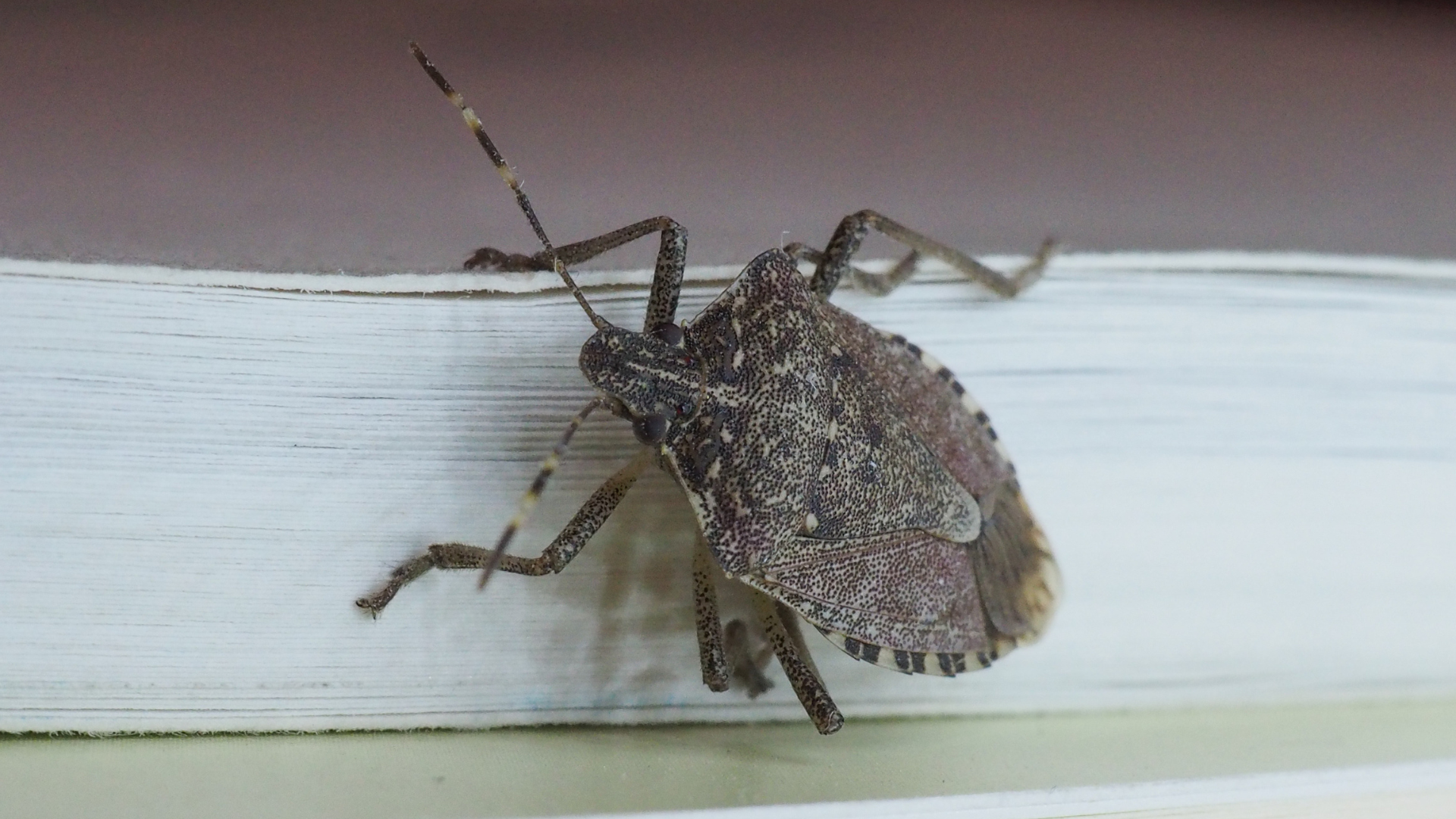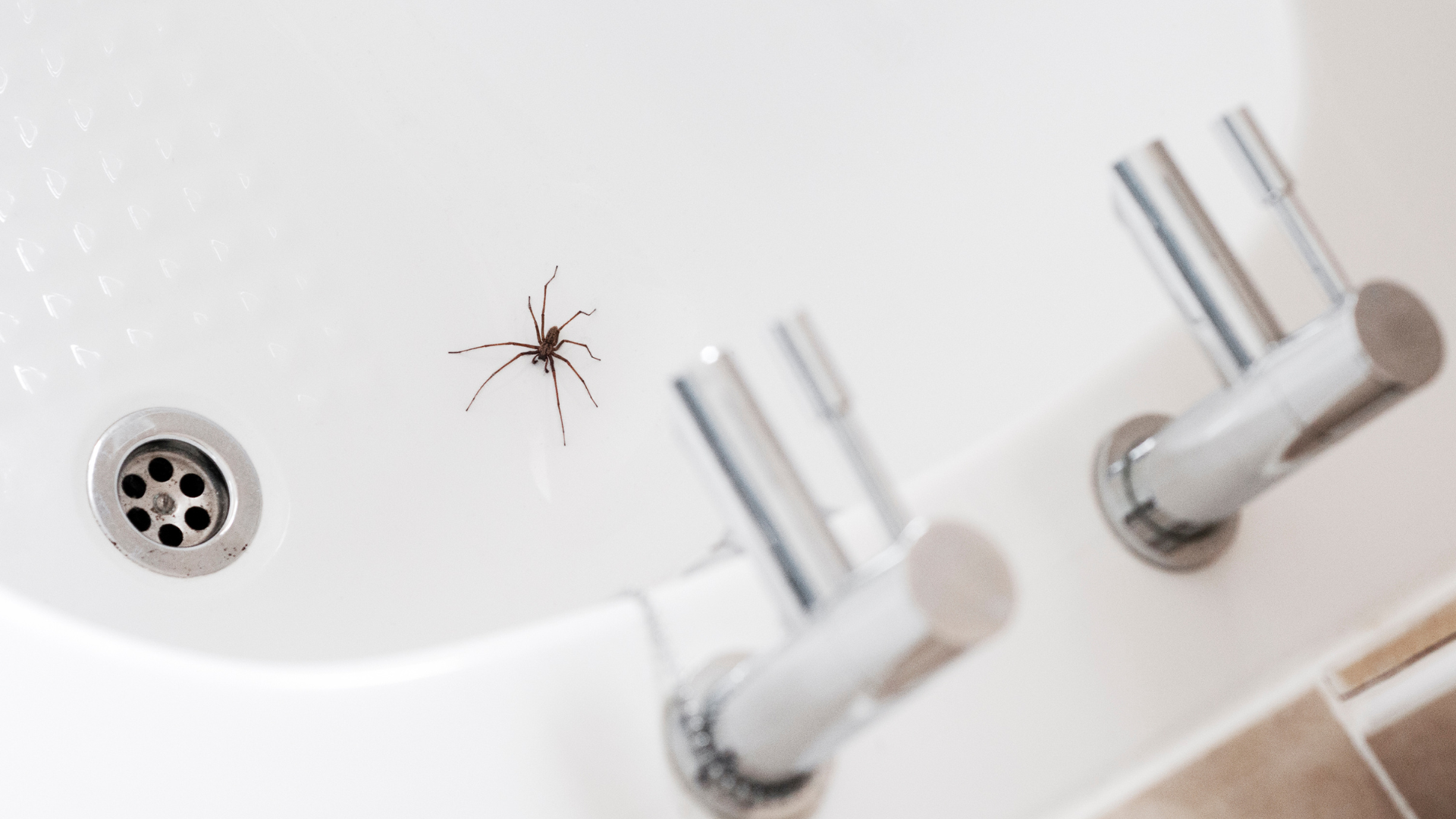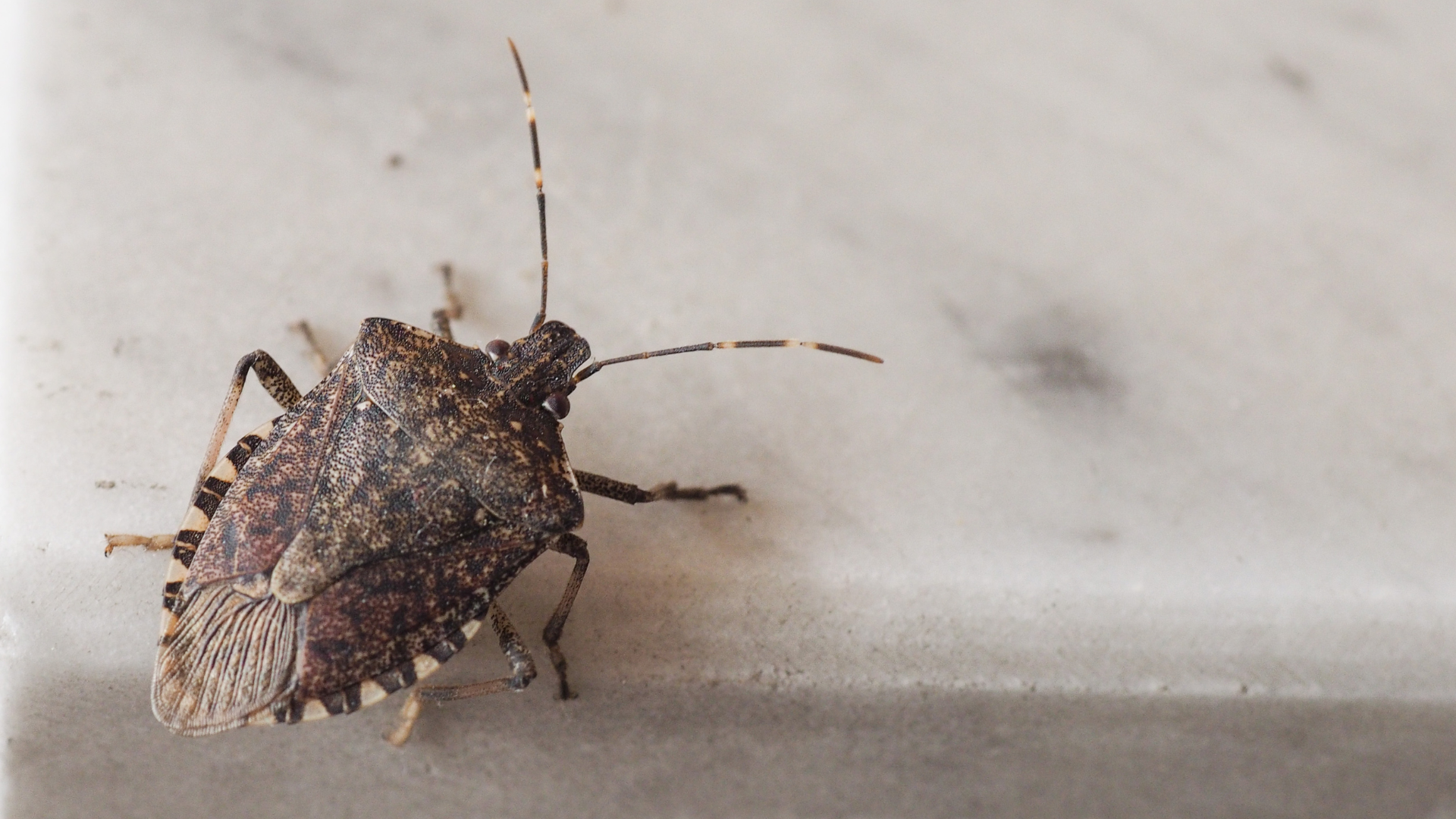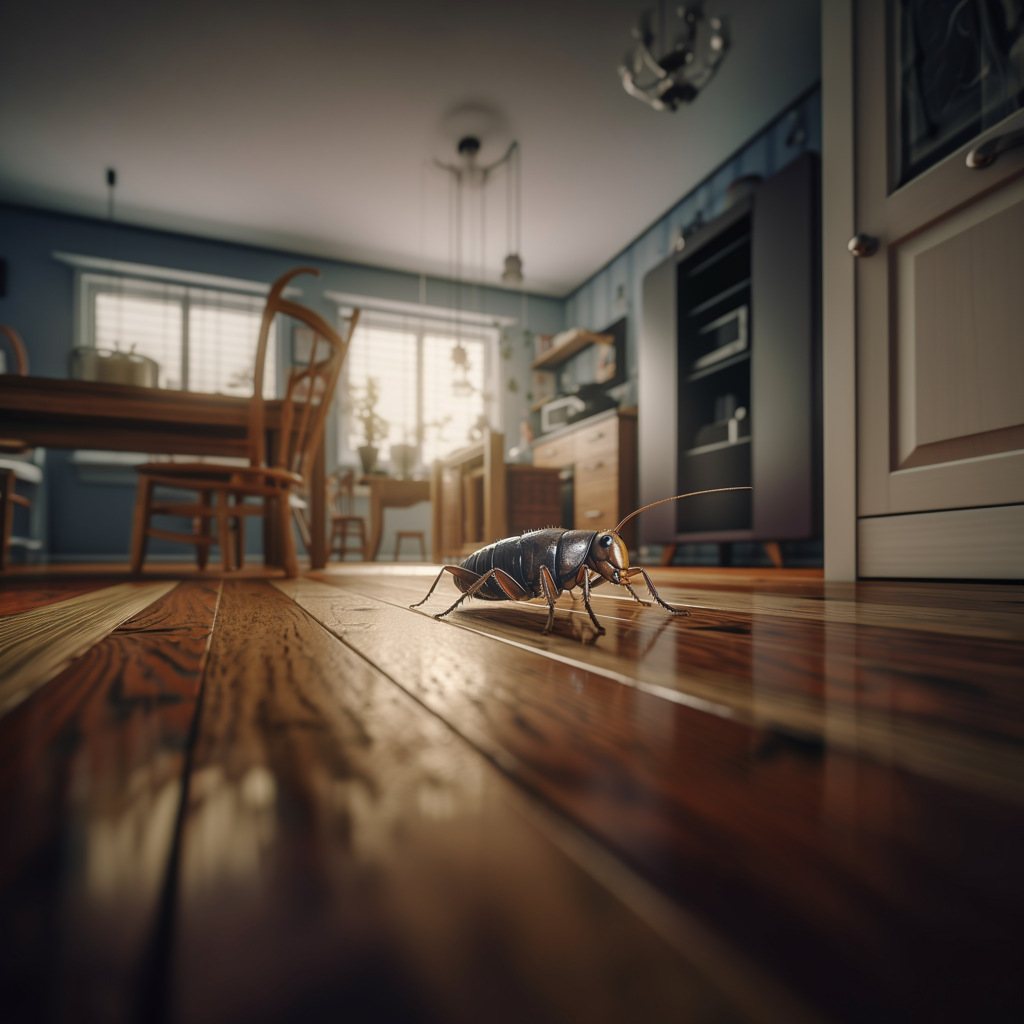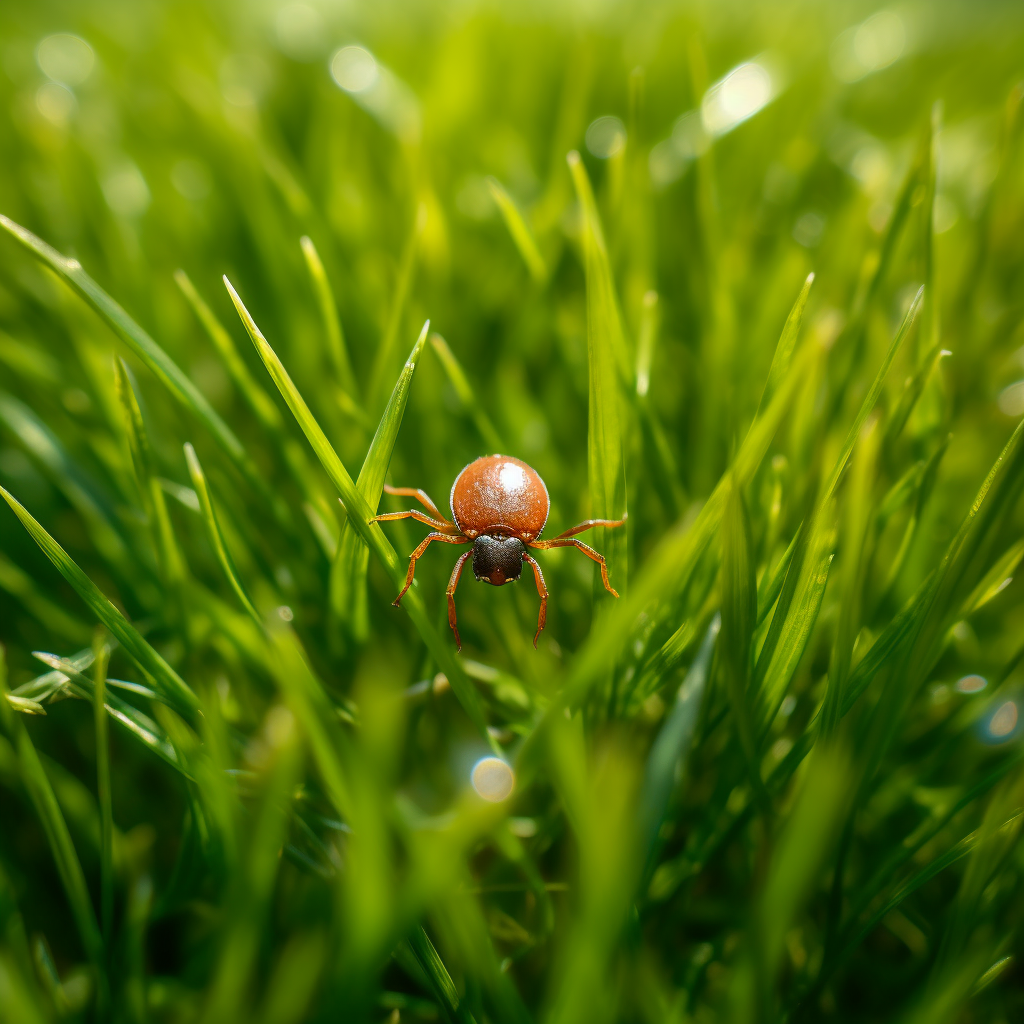Canine Bed Bug Inspections: How Do They Work?
Detecting bed bugs early in an outbreak is critical for managing a burgeoning infestation.
While traditional residential and commercial bed bug inspections are reliable, sometimes it takes the help of an expert to find bed bugs in places humans wouldn’t normally look.
We’re all familiar with the power of Fido’s nose, but did you know that man’s best friend may also be his best defense against bed bugs?
This guide will eliminate any doubts you may have about canine bed bug inspections and illustrate just how accurate they are.
When to Call an Exterminator: Signs You Have Bed Bugs
Before hiring an exterminator to inspect your property, there will be a few telltale signs of bed bugs to look out for:
- Itchy welts or bite marks on the skin
- Brown smear marks on sheets and bedding
- A must odor that permeates throughout the room
- Exoskeletons left behind on furniture and bedding
Once you decide to call an exterminator, they will determine whether or not a canine inspection is required based on how bad the infestation truly is.
How Do Canine Bed Bug Inspections Work?
Dogs have an incredible sense of smell, and certain breeds, such as Beagles and German Shepherds, are particularly adept at detecting scents. Trained bed bug detection dogs undergo rigorous training to identify the unique odor emitted by bed bugs.
During an inspection, the handler guides the dog through the areas of concern, such as bedrooms, living rooms, and furniture. The dog sniffs for the distinct scent of bed bugs and signals when they detect it. The handler interprets the dog’s behavior–typically a specific posture or reaction–to pinpoint the infested areas. This method allows for a quick and accurate assessment of whether bed bugs are present.
Benefits of Canine Inspections
Canine inspections are often advantageous because they can precisely pinpoint exactly where bed bugs are hiding in your house. This means finding bed bugs in unexpected hiding places, such as wall cavities, electrical outlets, and more.
Canine bed bug inspections are also considered more accurate, giving you more bang for your buck.
Canine Bed Bug Inspection Accuracy
Studies have shown that well-trained bed bug detection dogs can achieve a high level of accuracy. In fact, they often outperform human visual inspections and even certain electronic devices designed for bed bug detection.
How to Prepare Your House for a Canine Inspection
If you and your exterminator decide that a canine bed bug inspection is right for your home, here are some things you can do to prepare for the inspection:
- Clean and Declutter: A tidy environment makes it easier for the dog to navigate and detect bed bugs. Remove excess clutter and vacuum thoroughly.
- Eliminate Potential Distractions: Minimize odors that could distract the dog during the inspection. Avoid using strong cleaning products or air fresheners in the areas to be inspected.
- Cooperate with the Handler: Follow the instructions of the handler during the inspection. They may ask you to move furniture or create a clear path for the dog to navigate.
- Inform the Handler of Concerns: If you’ve noticed specific areas of concern, such as recent travels or purchases of used furniture, inform the handler. This information can guide the inspection process.
Canine bed bug inspections represent a cutting-edge and highly effective method for detecting these troublesome pests. The combination of a dog’s olfactory prowess and a skilled handler’s interpretation makes this approach reliable and efficient. Early detection is key to preventing a minor bed bug issue and getting rid of bed bugs quickly.
FAQs
1. How accurate are canine bed bug inspections?
Canine bed bug inspections are known for their high accuracy. Well-trained dogs can detect bed bugs even in the early stages and in locations that may be challenging for human inspections.
2. Are there specific breeds used for bed bug detection?
While various breeds can be trained for bed bug detection, Beagles and German Shepherds are commonly used due to their strong sense of smell and trainable nature.
3. Can canine inspections replace traditional methods?
Canine inspections are a valuable addition to traditional methods and often outperform human visual inspections. However, a comprehensive pest control strategy may include a combination of approaches.
4. How long does a canine bed bug inspection take?
The duration of an inspection depends on the size of the property and the extent of the areas to be inspected. In general, canine inspections are efficient and can provide quick results.
5. Is there a risk of false positives with canine inspections?
While rare, false positives can occur. It’s essential to follow proper preparation guidelines and communicate any relevant information to the handler to enhance accuracy.
Tackling the Stink Bug Challenge: A Homeowner's Guide
As the seasons shift annually from warm to cold, a familiar and unwelcome guest often enters your New Jersey home. And its name alone should make you want to take action so you don’t encounter it: the stink bug.
Known for their distinct shield-shaped body and their unpleasant odor when threatened, stink bugs are more than just a nuisance; they pose significant challenges to homeowners and gardeners alike.
Here’s some insight into these pesky winter bugs and effective strategies to keep them at bay.
Unmasking the Stink Bug: A Closer Look
The brown marmorated stink bugs, or Halyomorpha halys, are not just ordinary household pests. With their mottled brown color, shield-shaped body, and long legs, they can be easily identified.
This uninvited guest made its grand American debut in Allentown, Pennsylvania, in September 1998—and it’s believed to have arrived quite by accident. But don’t let its unassuming arrival fool you; this bug is a voracious feeder known to feast on over 100 plant species, including numerous crops.
By 2010-11 rolled around, orchards throughout the Eastern United States were battling this pest all season long. The impact? Staggering. In the Mid-Atlantic alone, apple crops suffered a loss of $37 million in 2010. Some stone fruit farmers faced nightmarish scenarios, losing over 90% of their harvest.
The brown marmorated stink bug’s appetite wasn’t confined to the U.S. It ventured further, reaching the nation of Georgia and Turkey, where it wreaked havoc on hazelnut production.
Today, this intrepid bug has firmly established itself in various parts of North America and has even set its sights on new territories – Europe and South America are its latest conquests. Its spread is a reminder of the delicate balance within ecosystems and the impact that one small creature can have on global agriculture.
These pests are particularly notorious for their survival tactics. When the weather cools, they seek warmth, often inside our homes, garages, or sheds. And when threatened, they release a potent odor as a defense mechanism. But it’s not just their smell that’s a concern; their feeding habits can wreak havoc on various crops, including fruits and vegetables, which can cause major issues for those who do indoor gardening over the colder months.
And because they feed on fruits and vegetables, they are a significant agricultural threat, known to damage a wide range of crops. They can become a persistent issue in our homes, especially during colder months, as they seek shelter. Understanding their behavior is the first step in effectively managing their presence.
To effectively manage these pests, it’s essential to understand their lifecycle. Stink bugs undergo three stages: egg, nymph, and adult. The eggs, laid in groups on the underside of leaves, hatch into nymphs.
These nymphs go through five stages, growing larger with each molt until adulthood. The adult stink bugs are the ones that often invade our homes, seeking warmth.
Combating Stink Bugs Effectively: Your Action Plan
Following are some tips to remove these pests from your New Jersey home and prevent them from returning.
Embrace Prevention as Your First Line of Defense
Preventing stink bugs from entering your home is more effective than dealing with an infestation.
Start by sealing any cracks around windows, doors, and siding. Repairing damaged screens is also crucial. Additionally, consider your outdoor lighting; these bugs are attracted to lights, so minimizing their use can help reduce their presence.
Preventative pest control is always much more effective and affordable than having to remove these pests later.
Natural Repellents: A Safer Approach
In your quest to deter these pests, nature offers some excellent solutions.
Mint spray, made from water and mint oil, acts as a natural deterrent. Similarly, diatomaceous earth can be sprinkled around potential entry points, creating a barrier against these invaders. Essential oils like citrus, lavender, and eucalyptus also serve as effective repellents, adding a pleasant aroma to your home while keeping stink bugs away, as well as cockroaches.
The Art of Mechanical Removal
Sometimes, the simplest methods are the most effective. Vacuuming stink bugs is a practical way to remove them without triggering their notorious smell. Hand-picking (with gloves, of course) is an option for smaller invasions. It’s a direct approach that, while time-consuming, can be surprisingly effective.
When to Consider Chemical Treatments
While we focus on environmentally friendly methods, certain situations may call for chemical treatments. Insecticidal soaps can target stink bugs without harming other beneficial insects. However, they should be used sparingly and as a last resort. Always follow label instructions to minimize any potential environmental impact.
Professional Pest Control: When to Call in the Experts
Professional pest control services from Anchor Pest Control can provide the expertise and efficiency needed for severe infestations or when DIY methods fall short.
Specialists in pest control can assess the situation and implement integrated pest management strategies, combining mechanical, biological, and chemical methods for a comprehensive solution.
The Bottom Line: A Balanced Approach to Stink Bug Control
Dealing with stink bugs is about striking a balance. It involves being proactive with preventive measures, using natural repellents, and knowing when to seek professional help.
By understanding their behavior and lifecycle and considering the environmental impact of control methods, we can manage stink bug populations effectively, keeping our homes and gardens safe and comfortable.
For a personalized approach to stink bug control and expert advice, feel free to reach out to us for a free quote. Together, we can ensure that these uninvited guests don’t overstay their welcome in your home.
FAQs
What attracts stink bugs to New Jersey homes?
Stink bugs are drawn to homes for warmth, especially during cooler months. They are also attracted to light.
Are stink bugs harmful to humans or pets?
Stink bugs are not harmful to humans or pets but can be a nuisance due to their smell and large numbers.
Can stink bugs cause damage to my home?
While they don’t cause structural damage, stink bugs can invade homes in large numbers and spoil indoor environments.
What natural remedies can repel stink bugs?
Mint spray, diatomaceous earth, and essential oils like citrus, lavender, and eucalyptus are effective natural repellents.
When should I consider professional pest control for stink bugs?
Consider professional pest control if you have a severe infestation or if DIY methods are ineffective.
11 Tips to Keep Spiders Away for Good All Year
While spiders in New Jersey play a crucial ecological role, their presence indoors is often less welcomed.
Contrary to popular belief, spiders still tend to make their way indoors during the winter in the tri-state area, giving plenty of arachnophobes jump scares all year round. Worse yet, some spiders also work together, making them somewhat social creatures that can drive large populations to any home.
If you’re seeking permanent solutions to keep spiders away, here are 11 comprehensive strategies to ensure your home remains spider-free.
1. Get Rid of Excess Bug Populations
Eliminate the spiders’ food source by controlling bug populations.
An excess spider population typically indicates an excess bug population.
Regularly inspect for insects in your home and use appropriate measures, such as insecticide sprays or natural bug repellents, to keep bugs away. Likewise, ensure your window screens are intact and devoid of holes to keep spiders and all kinds of insects out.
2. Plant Spider-Repellent Herbs and Vegetables
Try some natural pest control solutions before you reach for the heavy chemicals.
Several plants naturally repel spiders in your garden and around your home’s perimeter. Plant some natural herbs during the spring to keep spiders and bugs away during the warm months.
Alongside lavender, mint, and basil, consider planting hardy chrysanthemums and marigolds that will repel spiders for much of the year.
3. Remove Spider Webs
Be proactive in removing spider webs. This not only gets rid of existing spiders but also sends a message to others that the area is unsafe.
Check less frequented areas like basements, attics, and the undersides of furniture regularly, as these are familiar places for spiders to spin their webs.
4. Declutter Spaces
Spiders thrive in undisturbed, cluttered areas. By decluttering, you remove potential spider habitats.
This is particularly important in garages, sheds, basements, and attics, where many people tend to store their stuff. Regularly sorting through and disposing of unwanted items can significantly reduce spider-hiding spots.
5. Dust and Vacuum Regularly
Maintaining a clean home free from dust and debris makes your environment less appealing to spiders. Focus on vacuuming in corners and under furniture where spiders might reside.
Remember to clean behind appliances and other seldom-cleaned areas where spiders might find refuge.
6. Keep Yards Tidy
A well-maintained yard is less likely to harbor spiders. Remove any yard debris, such as leaf piles and stacked wood, as these can be perfect habitats for spiders.
Regularly trimming hedges and trees can also reduce the likelihood of spiders finding their way into your home.
7. Seal Entry Points
Thoroughly inspect the exterior of your home for cracks and openings. Use a caulk or spray foam to seal large cracks where bugs and other debris may enter your home.
Pay special attention to areas where utility lines enter, as these are often overlooked. Sealing these points not only prevents spiders but also other pests from entering your home.
8. Spray Surfaces with Vinegar
A mixture of equal parts water and white vinegar can be used as a natural spider repellent. Spray this solution around windows, doorways, and other potential entry points. The acidity of the vinegar deters spiders without using harsh chemicals.
9. Diatomaceous Earth
Diatomaceous earth is a fine powder made from the fossilized remains of diatoms, a type of algae. When sprinkled in areas where spiders frequent, it acts as a natural pesticide. It’s safe for humans and pets but lethal to spiders and other small insects.
10. Citrus Peels
The strong scent of citrus is known to repel spiders, so placing fresh citrus peels in areas prone to spiders, such as windowsills and near doorways, can be effective at deterring spiders.
11. Turn Out the Lights
Most people are unaware that lights draw many insects to your home, which can be the perfect feeding grounds for spiders. By minimizing outdoor lighting or switching to insect-repellent bulbs, you can reduce the number of spiders in and around your home. This also has the added benefit of saving energy.
Implementing these 11 tips can significantly reduce the presence of spiders in your home, making it a more comfortable and spider-free environment.
Consistency is critical; regular maintenance and proactive measures will help keep spiders at bay all year round.
FAQs
Can spiders be beneficial?
Indeed, spiders can be beneficial as they prey on many common household pests. However, their presence inside homes could be more desirable for most people.
Are natural remedies effective against all spider species?
Natural remedies can be effective, but their efficiency may vary depending on the spider species. Some spiders might be more resilient or less deterred by these methods.
How fast do spiders reproduce?
The rate of spider reproduction varies by species. Some can produce several hundred offspring relatively quickly, necessitating prompt and consistent control measures.
What attracts spiders indoors?
Spiders typically venture indoors for food, shelter, or a mate. Conditions like high insect activity, warm environments, and undisturbed areas can attract spiders.
Can professional pest control eliminate spiders?
Professional pest control can effectively manage and significantly reduce spider populations. While complete eradication is challenging, regular professional treatments can keep spider numbers to a minimum.
How to Get Rid of Rodents in Walls and Attics During Winter
Tri-state area residents are all too familiar with the seasonal battle against rodents seeking shelter during winter.
As the outdoor temperature drops, rodents in New Jersey, such as mice and rats, often seek refuge in warm and hidden spaces like your basement and attic.
While getting rid of the occasional rodent in your basement may be easy, what about if they climb into hard-to-reach places, such as your walls?
This article will explore the signs of a rodent infestation, how to combat it, and how to eliminate rodents in your walls and attics.
Signs of a Rodent Infestation
Most people quickly recognize the noises that rodents tend to make—especially the ones that keep you awake at night—but plenty of other signs of a rodent infestation may exist within your home.
Remember, rodents are adept at staying out of sight, so being aware of the more subtle signs of their presence is critical.
Here are the most popular signs that can alert you to a rodent infestation, enabling you to address the issue before it escalates.
- Scratching Sounds: Particularly at night when rodents are active.
- Droppings: Small and dark, found along walls or near food sources.
- Gnaw Marks: On food packaging, furniture, or wires around the house.
- Footprints or Tail Marks: In dusty areas, especially in little-used parts of the home like your attic.
- Unusual Pet Behavior: Like barking at a wall or being fixated on a particular area.
- Nesting Materials: Shredded paper, fabric, or dried plant matter.
- Stale Smells: Indicating rodent urine or nesting areas.
- Rub Marks: Greasy marks left by rodents along walls or baseboards.
- Holes in Walls or Floors: Entry points for rodents.
- Disturbed Insulation: In attics or walls.
- Urine Pools or Trails: Rodents have weak bladders and often leave trails.
If you notice one or more of these indicators, it is essential to act swiftly. Rodents reproduce rapidly; therefore, a small problem can quickly become a large infestation.
Where Do Rodents Tend to Hide?
Like many pests, rodents are clever and can often rummage through your home unseen for many days or weeks without alerting you. The most common places to look for rodents include walls and attics. However, some additional places you may search for rodents include:
- Basements: Especially in cluttered areas or near warmth-emitting appliances.
- Underneath Kitchen Cabinets: Large hiding spaces with plentiful good access.
- Behind Appliances: Like refrigerators and stoves, due to warmth and possible crumbs.
- In Garages: Look amid clutter and storage boxes.
- Near Water Heaters: Heat source with an excellent hiding place.
- Inside Chimneys: This mostly only occurs in unused ones.
While many of these hiding spaces can be eliminated with simple traps and cleaning, walls, and attics require different solutions due to their inaccessibility.
How to Get Rid of Rodents in Walls and Attics
1. Perform an Inspection: Begin with a detailed inspection of your home. Look for signs of rodent activity, such as droppings, gnaw marks, and nests. Focus on less frequented areas like basements, attics, and utility rooms. Using a flashlight, inspect dark corners, behind appliances, and inside cabinets. Don’t overlook small spaces–mice can enter through openings as small as a quarter inch.
2. Seal Any Gaps and Cracks: After identifying potential entry points, it’s crucial to seal them with materials that rodents cannot chew through. Use steel wool, metal flashing, or heavy-duty caulk to close these gaps. Check the areas around doors, windows, and especially where utility pipes and cables enter the house. Remember, preventing access is key to long-term rodent control.
3. Eliminate Food and Water Sources: Rodents are attracted to areas with readily available food and water. Store all food in airtight containers and avoid leaving pet food out overnight. Regularly dispose of garbage and keep the bins sealed. Address any leaky pipes or faucets promptly, as even a small drip can provide a water source for rodents.
Note on Insulation: Examine your home’s insulation, both in the attic and within the walls. Rodents often use shredded insulation material for nesting. Repair or replace any damaged insulation, and consider adding rodent-proof insulation materials to deter nesting.
4. Use Mouse Traps: Trapping is an effective form of mouse prevention to control growing populations. Use a variety of traps, like snap traps, glue traps, and live catch traps, and place them in areas of known activity. Bait the traps with attractive foods such as peanut butter, chocolate, or fruits. Check the traps regularly and dispose of any captured rodents following local regulations.
5. Hire an Exterminator: In cases of severe infestations, professional intervention is often necessary. Pest control experts can assess the extent of the problem and deploy advanced methods like bait stations and structural modifications to ensure complete eradication. They can also provide advice on preventing future infestations.
By following these steps, you can effectively eliminate rodents from the walls and attics of your home.
Remember, the key to successful rodent control is a combination of exclusion, sanitation, and population reduction. Don’t hesitate to seek professional help if the infestation is beyond your control.
Finally, the earlier you address the problem, the easier it is to manage and resolve.
FAQs
How do rodents enter walls?
Rodents can enter through tiny gaps and cracks in the home’s exterior, such as where utility lines enter, under door frames, or through broken vents.
Are DIY rodent baits safe for pets?
While some baits are safer than others, there’s always a risk if pets can access them. If using baits, place them in locations inaccessible to pets and use pet-safe products.
Can I use natural repellents?
Natural repellents, like peppermint oil and cayenne pepper, can be used as a deterrent, but they are not always effective in eliminating an infestation. They work best as a supplementary measure alongside other methods.
What are the risks of ignoring a rodent infestation?
Ignoring a rodent infestation can lead to severe health risks, including the spread of diseases like Hantavirus. Additionally, rodents can cause significant structural damage by gnawing on wood, drywall, and electrical wiring, posing fire risks.
What Attracts Stink Bugs to Your Home? How to Strike Back
Known for the foul smell they emit when squished, stink bugs are easily identified by their unique shield-like bodies and spiky appearance.
Stink bugs are some of the most common household pests found in homes across the U.S. and some of the least desirable to any home.
While stink bugs are harmless to humans and don’t tend to cause any property damage, these pests can still become a nuisance when they invade homes in large numbers and release their unpleasant odor. Knowing what attracts these insects to your home in the first place is essential for getting rid of stink bugs and keeping them away for good.
How to Identify a Stink Bug Infestation
The most common stink bug in the northeast is the Brown Marmorated Stink Bug, known for its light brown exterior shells, antennae, and acrid scent.
Usually, the presence of a strong, unexplainable smell in your home will be a telltale sign that stink bugs have made their presence known. Stink bugs are said to smell like strong herbs and spices such as cilantro or coriander, and the smell will typically be stronger if there is a larger infestation in your home.
Additionally, spotting live or dead stink bugs around the house can be another sign that you may be dealing with a stink bug infestation. If you notice more than one stink bug in your home, it may be wise to contact an exterminator to have your home inspected and treated for stink bugs.
Essentials that Attract Stink Bugs to Your Home
Warmth
The most common reason stink bugs enter residential homes is in search of warmth. These insects require a warm environment in order to stay alive and active during the winter months, and the more warm and inviting your home is, the more likely they are to want to move in.
Food
Stink bugs love to feed on fruits and vegetables, particularly tomatoes, apples, and stone fruits. If you don’t properly seal your kitchen trash can or leave fruits and vegetables out on the counter, stink bugs will be able to smell the food and are more likely to be attracted to your home.
Light
Stink bugs are attracted to light, which is why you may notice them congregating around lamps or outdoor lighting. Stink bugs are most attracted to bright lights, so switching out your light bulbs to a more yellow-colored light may be effective in getting rid of these pests. It can also be helpful to turn off any outdoor lighting at night, as being in the dark may confuse them and draw them away from your home altogether.
When Do Stink Bugs Commonly Invade Homes?
Stink bugs are most active from March through September, so you may notice more of these insects than usual during these months. However, this timespan can vary depending on the weather each month, as stink bugs’ main motive when entering a home is to find shelter from the cold. When it comes to the time of day stink bugs are most active, you can expect to see them most often during the day or near lamps or outdoor lighting at night.
Stink Bug Prevention Tips
The best way to eliminate stink bugs is to prevent them in the first place.
There are several things you can do to prevent stink bugs from making their way into your home, including:
- Checking for broken screens on windows and doors and making the necessary repairs
- Sealing possible entryways
- Changing your outdoor lightbulbs to yellow, as stink bugs are less attracted to this color light
- Turning off exterior lighting at night
- Carefully inspecting laundry that was hung outside before bringing it indoors
Otherwise, you will need to contact a stink bug exterminator or experiment with homemade stink bug repellents to eliminate a large infestation.
FAQs
Can stink bugs bite or harm humans?
Stink bugs are not aggressive towards humans and cannot bite, as their mouths do not allow them to pierce through skin. Although they do produce a foul odor when they are squished, this scent is typically harmless and may only cause mild irritation to people who are particularly sensitive to smells.
Are stink bugs attracted to certain colors?
Stink bugs are known to be particularly attracted to the color white, which is why you may notice these insects latched onto your light-colored bed sheets or bath towels.
How do stink bugs get into homes?
There are several ways stink bugs make their way into homes, either by hitching a ride on laundry that has been hung up on the clothesline outside or through broken screens or cracks in your home. Once stink bugs enter a home, they will give off pheromones that attract other stink bugs, which is why you may notice several in your home at one time.
What are the health risks associated with stink bugs?
As mentioned earlier, there are no known health risks associated with stink bugs, as their mouths do not enable them to pierce through human skin. They are also not harmful to pets, so you won’t have to worry if your furry friend comes in contact with a stink bug.
Do stink bugs damage furniture and clothing?
Stink bugs typically will not cause damage to the structure of a home or anything within a home. When squished, they may release droppings that can leave tiny stains on furniture or clothing, but these stains can usually be removed in a standard wash cycle.
7 Easy Tips to Keep Cockroaches Away for Good
Out of all of the common household pests, cockroaches are some of the most feared. Each year, millions of homeowners discover cockroach infestations, and once these pests make their way into your home, it can feel almost impossible to get rid of them.
Knowing how and why cockroaches enter residential homes in the first place is the first step to preventing these dreaded pests from moving into your space. Here are seven easy tips to keep cockroaches away for good, as well as some telltale signs to look out for.
Why Cockroaches Enter Your Home
Cockroaches most often enter residential properties in search of food and water, so they are more likely to be drawn to your home if you provide these resources for them. Unsealed trash bags, dirty dishes in the sink, and leaky faucets can all attract cockroaches to your home. Additionally, these pests are also known to enjoy feasting on pet food that is either left out in a bowl on the floor or not stored properly, so be sure to keep an eye on your furry friend’s food and seal any bags of kibble when not in use.
Signs of Cockroaches
Cockroaches can be sneaky, which is why many homeowners don’t realize they have an infestation until it’s already gotten out of control. However, knowing the signs to look for can help you recognize a cockroach infestation and get the problem under control promptly. Some telltale signs of a cockroach infestation include:
- Cockroach droppings
- Foul, musty odors
- Cockroach eggs
- Smar marks on walls and surfaces
- Chew marks on household items and appliances
- Live or dead cockroach sightings
- New allergy symptoms
7 Tips to Keep Cockroaches Away
1. Seal All Entry Points
Cockroaches are known to be able to squeeze through even the smallest cracks and crevices, so be sure to seal any possible entry points to keep these pests out. You can do this using a store-bought caulk or sealant and applying it to any cracks in the walls and floors of your home.
2. Keep a Clean Home
One of the best ways to combat any pest infestation is to keep a clean home, especially when it comes to cockroaches. These pests thrive in dirty or damp conditions, so tidying up as much as possible will prevent cockroaches from wanting to stick around. Getting into a regular cleaning routine of washing your floors, not leaving dirty dishes in the sink, and clearing any clutter off of your floors is a great way to prevent cockroaches.
3. Keep a Clean Yard
Overgrown grass and poor landscaping outside of your home can create the perfect breeding group for cockroaches and can eventually lead them indoors, so staying on top of your lawn care can be an effective way to prevent these pests. During the summer months, be sure to regularly mow your lawn and pick up any weeds and overgrown vegetation around your home.
4. Eliminate All Standing Water and Leaks
Cockroaches are particularly attracted to damp areas, so having any leaking faucets or standing water in or around your home could draw these pests in. Be sure to inspect your home for any leaking or standing water, and take care of these issues for your best chance at keeping cockroaches away.
5. Plant Strategic Herbs
There are several plants and herbs cockroaches are known to hate, and planting them in your garden or keeping potted plants in your house can effectively ward off cockroaches. Catnip, lavender, citronella, and mint are all known to deter cockroaches, so consider planting these herbs if you are dealing with a cockroach problem.
6. Apply an Organic Insecticide
Applying an organic insecticide in or around your home can also be effective in getting rid of cockroaches. There are many different options available to homeowners, from diatomaceous earth to neem oil. When choosing which insecticide to use, be sure to carefully read the instructions to ensure you are applying the solution safely and effectively.
7. Enlist In a Local Pest Prevention Program
When dealing with a serious pest infestation such as cockroaches, your best bet is to contact a pest control expert at the first sign of trouble. Cockroaches are notoriously difficult to get rid of, and you could end up making the problem worse if you try to tackle it on your own. A local and trusted pest control professional will be able to inspect your home to determine the severity of the infestation and create a unique treatment plan to get rid of these pests once and for all.
FAQs
What are the health risks of cockroach infestations?
There are several different health risks associated with cockroach infestations, with the most prominent being allergies. Cockroaches can be an allergen trigger for many people and can even cause asthma attacks for some. Additionally, cockroaches are dirty insects that carry bacteria that can be harmful to humans.
Can cockroaches infest clean homes?
Contrary to popular belief, cockroaches can infest clean homes, too. There are many ways cockroaches can make their way into a home, from squeezing through tiny cracks in the walls to hitching a ride on cardboard boxes and packages. The best thing homeowners can do is create an environment that would prevent cockroaches from wanting to stick around, so keeping a clean house and eliminating any possible food sources is imperative.
What is the best method to kill roaches instantly?
When it comes to getting rid of cockroaches for good, your best bet is to enlist the help of a pest control professional. However, there are things you can do in the short term to instantly kill any roaches you may see around your home. There are several store-bought chemicals that can be sprayed directly onto cockroaches to kill them, as well as DIY methods, like dousing a cockroach in a combination of dish soap and water.
Seasonal Pest Guide: How to Prevent Invasions All Year Long
With the changing of each season comes a slew of new household pests for many NJ, PA, and NY homeowners.
While some household pests are typically seen as more benign, such as ladybugs, others can quickly become a nightmare if not dealt with promptly.
Understanding the most common bugs present during each season is key when it comes to knowing how to prepare and deal with an infestation.
Here are some of the most common pests throughout the year and tips to prevent them from invading your property.
Seasonal Pests: Understanding Pest Life Cycles
When it comes to the life cycles of a pest’s life, most go through four main stages:
The length of each stage can vary from pest to pest, as well as other factors like humidity, the weather outside, and access to food and water.
In many cases, insects will lay their eggs during the fall and hatch in the spring.
Therefore, identifying where and when pests lay their eggs will give you better odds to squash them before they multiply.
For this reason, we want to provide a broad overview of the most common insects that enter homes during every season.
Common Bugs of Spring
- Mosquitoes: Typically active in May or June but can appear as early as February in some places
- Ladybugs: Most active between spring and fall. During the colder months, they tend to retreat indoors or seek shelter underneath rocks or in rotting logs.
- Ticks: Typically start to appear from March to May but can be active any time the temperature is above freezing.
- Spiders: Although spiders can live year-round, they are typically most active in late Spring. [Learn more: Common Spiders in New Jersey]
Common Bugs of Summer
- Bees: While bees start to become active in spring, they are most commonly seen during the summer months
- Ants: Ants multiply during the warm summer months and commonly enter homes at the first scent of any sweet or greasy. It’s very common to see a colony of black ants in your house if you do not take steps to control them effectively.
- Fruit Flies: Attracted to ripe or rotting food, fruit flies are most active during the late summer months.
- Pincher Bugs: Pesky earwigs are active during spring and summer, though they tend to be nocturnal and rarely make their way into homes.
- Termites: Most active during the warmer months, termites often make themselves known on a warm summer day after rainfall.
Common Bugs of Fall
- Stink Bugs: Most active in early fall when the weather is still relatively warm, stink bugs can invade any part of your home.
- Cockroaches: If you notice cockroaches or waterbugs in your house during the fall and winter months, it is because these pests are in search of warmth, shelter, and food.
- Beetles: Often mistaken for cockroaches, beetles are most active during the fall in preparation for hibernation. They tend to migrate to any room with warmth and food.
Common Bugs of Winter
- Box Elders: Commonly seen on cold winter days, Box Elders typically hide out in basements where it is warm.
- Bed Bugs: These critters seek warmth by making their way inside homes, though they are usually transmitted via second-hand furniture and clothing.
General Pest Prevention Tips
Luckily, most preventative pest control methods will work for pests year-round.
- Keep a clean house
- Carefully inspect packages before bringing them into your home
- Be wary of used items from thrift stores
- Practice proper food storage
- Fix leaky faucets and plumbing
- Maintain the landscaping outside your house
- Seal any cracks and crevices in your home
- Repair broken screens on windows and doors
- Get rid of standing water inside and outside your home
The Importance of All-Season Pest Control
With that said, not all pest prevention tips will be 100% effective.
For example, it can be difficult to keep bees and mosquitos out of your yard, especially if you have a thriving garden or even a bird bath in your backyard.
Similarly, beetles and elder bugs can easily make their way into your home even without a plentiful food source simply because your home has warmth.
Therefore, all-season pest control is imperative to ensuring that pests stay far away from your home throughout the year.
An all-season pest control approach is tailored to the habits and life cycles of the pests most common in your area and targets the pests that are most likely to show up during each season of the year.
Work with your local exterminator to create an all-season pest control plan that repels most forms of pests and insects.
Anchor Pest Control’s Pest Protect 365 offers year-round protection against over 40 species of pests. Contact one of our customer representatives for more information.
FAQs
Can I use the same pest control methods throughout the year?
There are some general best practices we recommend for every pest. However, the pest control method you use should be tailored to the specific pest you are targeting. Even different baits and traps will be designed for different pests.
Can year-round pest control methods help with allergies?
Certain types of pests can trigger allergies for many people, so utilizing year-round pest control can be helpful in keeping those allergens at bay. Be sure to consult with a pest control professional if you are experiencing any unusual allergy-like symptoms, as this may indicate a pest infestation.
Are there natural ways to control pests during all seasons?
There are many ways to reduce the chances of unwelcome pests entering your home throughout the year, from keeping a clean house to repairing any broken screens on your windows or doors. Other natural remedies, such as planting certain herbs in your garden or diffusing essential oils, may also be effective in keeping pests away year-round.
10 Ways to Keep Animals Out of Your Garbage
Having the occasional raccoon ransack your garbage may feel innocuous, but inviting wild animals to snack on your outdoor garbage can be dangerous.
Between bears and wildlife in New Jersey that carry diseases or threaten homeowners and their families, it’s very important to protect your trash from wildlife threats.
Furthermore, the smell of garbage can attract other nuisance pests that eventually enter your home.
To prevent these issues, we’ve outlined 10 quick tips to keep animals out of your garbage once and for all.
1. Minimize the amount of food waste in your trash.
If you can, use the garbage disposal on your sink or put food into your trash bins only on pick-up day. Make sure that cans are always brought to the curb on garbage day and that you aren’t letting any trash pile up outside the can.
2. Keep your trash can lids secure.
Many of the older metal cans have lids that clip on tightly. Today, the new plastic cans that can be picked up by garbage trucks have lids that blow open fairly easily. A bungee cord can keep the lids closed without much hassle.
3. Move your trash indoors.
If you have a cold garage or shed, you can keep your trash cans inside. Keeping trash indoors will keep the creatures out, though it may invite pests, such as big black ants if you don’t secure your lids properly.
4. Cover up the smell of food.
Spray bleach, ammonia, or vinegar to mask the smell of rotting food and garbage. Raccoons, cats, and squirrels will be repelled and fooled by these smells, so apply them regularly if you feel that your trash is a bit too strongly scented. This will also help keep away rodents.
5. Stake down the garbage cans.
The wind can knock your garbage cans over. Run a rope over the top of the cans and stake them down to the ground for added protection. This will also protect your cans from wild animals that topple your cans in search of food.
6. Wash your trash cans frequently.
The build-up of delicious-smelling food runoff is irresistible to our furry little diners. Keeping your cans clean will eliminate any residue or unwanted smells that build up over time.
7. Keep food scraps in the freezer until garbage day.
Freezing food scraps during the warmer months will keep them from smelling bad while you are waiting for pick-up day.
8. Christmas lights can keep animals out.
Christmas lights scare raccoons and other animals, so they are perfect to keep critters out. You can put out a small wooden or metal frame or simply hang lights on the garbage cans to keep everyone out.
9. Build a chicken-wire box for your trash cans.
Anything that can keep the animals from being able to open the tops will prevent them from getting in. Try erecting a chicken wire fence or keeping your cans behind an existing one, even on a porch or deck if possible.
10. Animal repellent is a simple solution.
Several over-the-counter sprays can be put on the cans and on the trash that will keep the raccoons and other creatures out.
Generally, though, most preventative pest control best practices will be useful in keeping animals out of your trash, though you might need to take some extra precautions.
One critical note: If you see a raccoon or other animals acting strangely, please call Anchor Pest Control as soon as possible. Raccoons and other mammals can carry rabies and give it to pets and family members.
If you find that you have a consistent problem with animals in your garbage, call us, and we will come out to assess the situation. We have professional solutions that will keep your garbage in the cans when these DIY options may not help.
FAQs: How to Keep Animals Out of Trash
How can I deter raccoons from rummaging through my trash?
Place a brick or cinder block on the lid of your can to prevent raccoons from opening them with their hands.
Are there any eco-friendly ways to keep animals out of my garbage?
Spread natural herbs, such as mint, around trash cans to repel animals. Other natural pest control methods, such as ammonia, are also helpful as they irritate wildlife but not necessarily hurt them.
What should I do if I encounter a wild animal while managing my trash?
Call animal control or your local exterminator immediately. Even animals, such as opossums, can be highly dangerous if they have rabies or carry any other diseases.
Mouse Prevention Tips for the Upcoming Rodent Season
With the colder weather setting in, rodents can become a big problem for many homeowners.
Rodent season begins from late August to October, with mice being the most common rodent to infest homes.
Knowing how to prevent mice from entering your home is key when it comes to protecting you and your loved ones from these unexpected pests this winter.
Here are some of the best mouse prevention tips and a few of the most frequently asked rodent questions.
When Are Mice Most Active?
Mice are nocturnal and typically only search for food or water after dusk to avoid detection. Because of this, a mouse infestation can go unnoticed for a long time, unless you know what signs to look out for.
Additionally, mice are most active during the fall and winter months when temperatures are cooler, and they take refuge in your home.
Signs of a Mouse Presence
Mice may be sneaky creatures, but they can also be loud and belligerent without even realizing it. Here are several telltale signs of a mouse infestation to be aware of:
- Noises coming from inside the walls and underneath the floorboards
- Rodent droppings
- Gnaw marks on food packaging
- Burrows or holes
- Rodent tracks
- Discarded nesting materials, such as paper or plant matter
- Live or dead rodent sightings
Types of Rodents and Their Impact
There are several different animals in the rodent family, including mice, rats, and squirrels. Mice and rats are known to carry a number of diseases that are dangerous to humans and can transmit them through either direct contact or from urine or feces droppings.
Mice are the most common rodent in New Jersey, typically entering homes through small cracks near your basement. Rats are known to infest houses, though they tend to come up through sewers and dirt floorboards.
Squirrels can also enter homes, though this is usually only possible if you have a huge hole in the exterior of your house.
Nevertheless, all three rodents can wreak havoc on your house, chewing through wiring and other materials behind your walls. For this reason, you should take the same precautions to prevent all rodents from entering your home.
7 Tips to Prevent Mice From Entering Your Home
1. Clean Up Trash and Clutter
Keeping a clean home is one of the most important ways to prevent pests of all kinds from invading your space, especially mice. Regularly taking out the trash and disposing of garbage bags in sealed containers away from the house is a big way to prevent mice from entering your home, as they are less likely to show up if you don’t have anything to offer them.
2. Clean Up Your Yard
Overgrown grass and weeds create the perfect hiding places for rodents, so maintaining your property is imperative to keeping mice at bay.
3. Seal Cracks and Entrances
Sealing cracks and crevices in your home is essential to keep rodents from invading your space. This can be done using an inexpensive store-bought caulk and applying it to any cracks and possible rodent entrances in your home.
4. Eliminate Food Sources
Eliminating food sources is an important way to prevent mice from entering your home, as they are typically searching for food and water. This means regularly sweeping your floors, cleaning up after every meal, and properly storing your food in airtight containers.
5. Adopt a Cat
Cats are natural rodent predators, so adopting a cat can work in your favor if you believe you may have a rodent infestation. People who live in urban areas or apartment buildings may also benefit from adopting a pet cat, as rodents are typically more prevalent in these areas.
6. Set Our Traps and Baits
If you believe you may be dealing with a mouse infestation, setting out baits and traps can be a good idea. There are several different types of traps available, from traditional snap traps to more humane traps. Bait stations can also effectively eliminate a rodent infestation, but be sure to carefully read the instructions to ensure they are set up properly and kept away from any pets or small children.
7. Call a Professional Exterminator
When in doubt, it is always best to seek the help of a pest control professional to handle any type of infestation. An experienced rodent control specialist will inspect your home to determine what kind of rodent you are dealing with and make targeted recommendations to take care of the problem quickly and effectively.
FAQs
Can mice infestations cause health problems?
While mice are not typically aggressive toward humans, their danger lies in the multitude of diseases they carry. Some of the most commonly transmitted diseases from mice to humans include plague, salmonella, hantavirus, and lymphocytic choriomeningitis virus.
What are the most common entry points for mice in a home?
Some of the most common entry points for mice include fireplaces, attics, dryer vents, and underneath doors. Once inside, mice will typically hide underneath kitchen cabinets, behind refrigerators, and behind stoves.
Do mice have a preference for certain types of food?
Mice are most attracted to sweet and fatty foods like fruits and berries, chocolate, bacon, butter, and lard. Because of this, it is imperative that you practice proper food storage and ensure that your food is properly sealed and put away to prevent rodents from sniffing it out.
Tick-Proof Tactics: 9 Proven Ways to Keep Ticks Out of Your Yard
Ticks are arguably some of the most dangerous bugs in New Jersey. While you may be used to your dog bringing home ticks occasionally, ticks can be incredibly damaging to human health.
Not only are ticks notorious progenitors of Lyme Disease, but some strains of Lone Star Ticks have even started carrying a special molecule that makes people allergic to red meat.
That’s why we’ve outlined nine essential tips for keeping your yard tick-free to keep you and your family’s health safe.
Why Are Ticks in My Yard?
Ticks are parasites that travel from place to place by latching themselves onto other animals. These animals include deer, squirrels, raccoons, foxes, and other types of rodents. Therefore, keeping your yard free of these critters will go a long way in keeping your yard tick-free.
Furthermore, ticks are also attracted to shade and moisture grass, so they will typically hide amidst tall grass or low-hanging shrubs. So, even if you cut your grass, you must still be wary about bringing your pet near any backyard bushes.
What Diseases Do Ticks Carry?
Ticks can carry several diseases, with the most common being Lyme disease. Each year, approximately 476,000 Americans are diagnosed and treated for Lyme disease, according to the CDC. In addition to Lyme disease, ticks can also carry Rocky Mountain Spotted Fever, babesiosis, ehrlichiosis, and tularemia, all of which cause symptoms that are hard to diagnose.
The most common types of ticks in New Jersey include the Deer Tick and the American Dog Tick.
9 Ways to Prevent Ticks in Your Yard
1. Maintain Landscaping
One of the best ways to prevent ticks from hanging around your yard is to maintain your landscaping. This includes regularly mowing your grass to a short length and trimming any overgrown bushes or shrubbery in your yard. Clean up any loose brush or debris that may be housing ticks or other pests, such as cockroaches.
2. Apply Mulch
Adding a protective mulch barrier around your yard can prevent ticks, as ticks will not cross a mulch border. While ticks may still enter your yard by hitching a ride on animals or people, applying a strip of mulch at least a couple of feet wide can significantly reduce the amount of ticks you see around your property.
3. Avoid Shaded and Wooded Areas
Ticks prefer to hide in shaded and wooded areas, so avoiding spending too much time in these places can reduce your chances of being bitten. When going into a wooded area, take necessary precautions, such as wearing long clothing that covers your skin and boots that go past your ankles.
4. Repel Deer from Your Yard
As cute as they are, deer are some of the biggest culprits for unknowingly giving ticks a ride into your yard. There are several all-natural methods you could use to repel deer from your yard without hurting them, such as planting strong-smelling herbs like lavender, rosemary, and garlic outside your home.
5. Use Tick Tubes
Tick tubes are DIY contraptions designed to kill ticks that travel on mice. The tubes resemble nesting material used by mice, which attract the tick-covered mice to their habitat and kill any ticks using a special pesticide. That pesticide is known as permethrin, and it’s soaked in cotton, which is placed inside the cardboard tubes to kill any ticks that enter.
6. Apply an Insecticide
There are a ton of different insecticides available to kill ticks, with permethrin (the chemical used in tick tubes) being one of the most effective. Other store brands of insecticides include Ortho, Hot Shot, and Spectracide, though it is imperative that you carefully follow the directions when applying any of these chemicals to ensure you are doing it properly and avoid poisoning yourself or your pets.
7. Grow Plants with Strong Scents
Several plants are known to deter ticks with their strong scent, including lavender, rosemary, sweet basil, and garlic. In addition to repelling ticks from your property, you’ll also have a nice backyard herb garden!
8. Inspect for Ticks Regularly
Inspecting yourself, your loved ones, and your pets for ticks after spending time outdoors is imperative for preventing the many diseases these pests carry. This is especially important if you have just come in from a hike through the woods or after walking through high grass, as ticks are more prevalent in these areas.
9. Hire an Exterminator
When in doubt, it is always best to hire a professional exterminator to handle a tick problem. A trusted pest control professional will be able to assess your property for ticks and determine the specific course of treatment needed to eliminate the problem.
Read more for additional tips on how to get rid of ticks on your property.
How to Protect Your Pets from Ticks
Ticks are not always avoidable, but there are several ways you and your pet can protect yourself from contact with any ticks.
- Keep your pet groomed and bathe them regularly. This will help you spot any ticks that may be hiding in your pet’s coat.
- Ask your vet about the best flea and tick collar for your pet. Conduct some research, as these collars do contain chemicals that may or may not be harmful to pets.
- Inspect your pet for ticks anytime they come in from spending time outdoors in wooded or forested areas where ticks hide.
- Educate yourself on how to remove ticks properly. Tick removal tools are incredibly cheap and available at most drug stores and pet stores.
Luckily, maintaining a tick-free yard will also help you combat other pests.
For year-round tick prevention, check out Anchor Pests’ Pest Protect 365 Program or contact us for further information.
FAQs: Tick Yard Prevention
How do ticks enter my yard in the first place?
Ticks will typically enter a backyard on the backs of other animals, such as deer or rodents. Once they arrive, they will establish themselves, typically in a dark and damp habitat. Ticks can often hide in tall grass and moist dirt, where they can hide and protect themselves.
Can ticks survive in all types of weather?
While the ideal weather for ticks is warm with high humidity, these pests are extremely resilient and can thrive in just about any weather. However, ticks are typically less active during the colder months, so you may not notice as many of them from October through March.
What should I do if I find a tick on my pet?
If you find a tick on your pet, you should try to remove it if possible. To remove a tick, part your pet’s fur until you see the tick burrowed into its skin. Using clean tweezers, grab the tick as close to your pet’s skin as possible and pull it straight upward. After the tick is removed, check the area to make sure the entire tick was removed, and bathe your pet with a flea and tick shampoo.
How often should I mow my lawn to prevent ticks?
A good rule of thumb is to mow your lawn about once a week to keep your grass neatly trimmed and to avoid creating an ideal environment for ticks. This is especially important during the summer months when ticks are most active.


